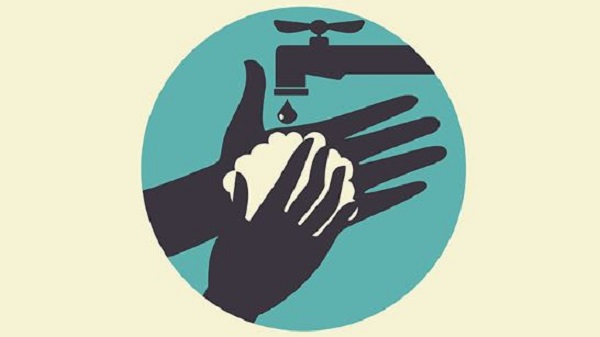
Ensuring good health through handwashing
“Clean hands for all” was the clarion call as the world commemorated the Global Handwashing Day yesterday.
Handwashing with soap under running water is an important everyday human activity.
Advertisement
It is one of the basic and simple practices that promote good health and prolong life.
But, many a time, it is taken for granted.
Many people all over the world treat handwashing as optional, unless the hands are seen as soiled. Even then, what has become acceptable as normal is just wiping the dirty hand on a piece of cloth, tissue or dress or just dipping it in water.
However, studies have shown that such a practice does very little to clean the hand, resulting in the contracting and spreading of avoidable diseases.
It is the reason the Global Handwashing Partnership, in 2008, established the Global Handwashing Day as a global advocacy day dedicated to increasing awareness and understanding of the importance of handwashing with soap as an effective and affordable way to prevent diseases and save lives.
For us at the Daily Graphic, it is our contention that the handwashing day and beyond must draw attention to handwashing and, by default, hand hygiene.
According to the organisers, this year’s theme was selected following the push to leave no one behind in the sustainable development agenda.
Statistics on handwashing and hygiene globally and in Ghana are dire.
Approximately one in five or 19 per cent of people wash their hands with soap after defecating.
Meanwhile, handwashing with soap reduces the risk of diarrhoeal diseases by 42-47 per cent.
The lack of access to sanitation and poor hygiene contributes to approximately 88 per cent of childhood deaths caused by diarrhoeal diseases.
In Ghana, the lack of handwashing facilities threatens the health and lives of people because 59 per cent, that is, more than half of the population, are denied access to basic hygiene facilities.
Diarrhoea linked to the lack of water, sanitation and hygiene claimed the lives of six children in Ghana every day in 2017, available statistics indicate.
Alarmingly, despite the critical importance of hygiene in health care, 29 per cent of all healthcare facilities in the country do not have access to water for handwashing for the prevention of diseases and infections during health care, according to WaterAid, an international non-governmental organisation working in 28 countries to make clean water, decent toilets and good hygiene normal for everyone.
The Daily Graphic urges all stakeholders in the provision of potable water, proper sanitation and hygiene services in the country to wake up to their responsibility of ensuring that no one is left behind in access to these sometimes discounted but very important facilities and services.
Currently in Ghana, many health facilities, schools, public places, individual homes and even government buildings either don’t have simple handwashing facilities or, where they have, they are in very deplorable conditions.
For instance, it is very common to enter a public place of convenience, a school or office toilet and realise that there is no water to wash the hands after using the place, or if there is, there is no soap.
This lack is what makes infectious diseases such as cholera spread quickly and widely if there is an outbreak.
The Daily Graphic urges all individuals to religiously observe proper handwashing, especially at critical times such as after using the toilet, cleaning a baby and before handling food.
That way, we will all ensure good health all-year round in the whole community and the country.
We also urge all government agencies tasked with ensuring the observation of good personal hygiene to prioritise this issue and promote this simple life-saving action of proper handwashing.




